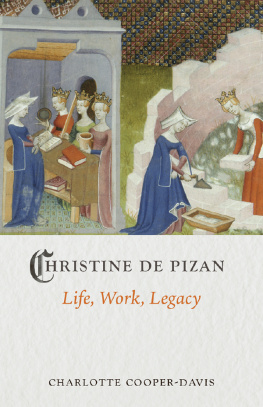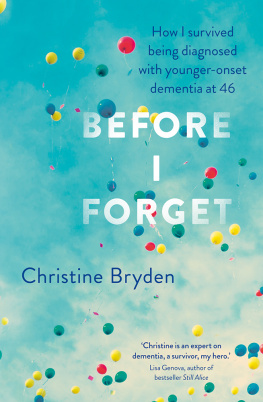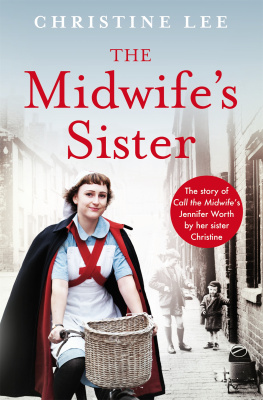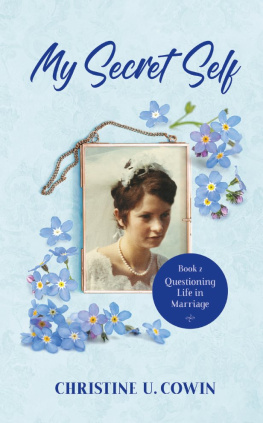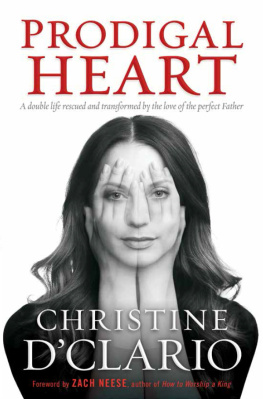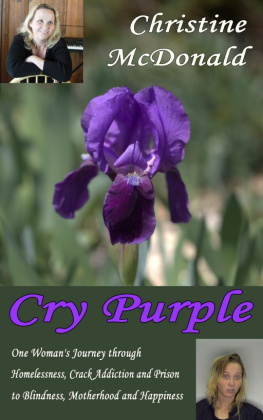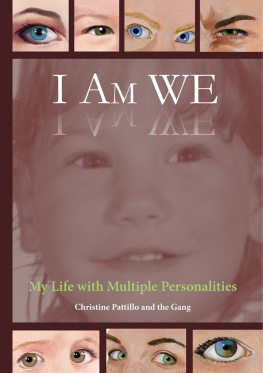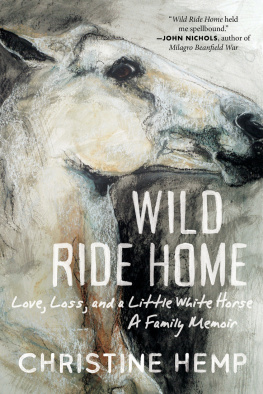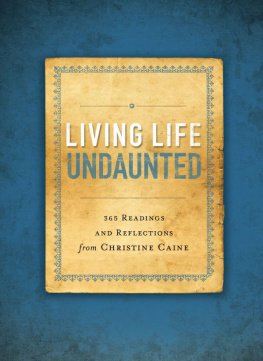So Far Away
A Daughters Memoir of Life,
Loss, and Love
Christine W. Hartmann
Vanderbilt University Press
Nashville
2011 by Vanderbilt University Press
Nashville, Tennessee 37235
All rights reserved
First printing 2011
Library of Congress Cataloging-in-Publication Data on file
ISBN 978-0-8265-1795-1 (cloth edition : alk. paper)
ISBN 978-0-8265-1796-8 (pbk. edition : alk. paper)
ISBN 987-0-8265-1797-5 : ebook
To Antje and Ron
Irmgard:
I have always been scared of death. But now that Ive decided Im not going to leave that final event to chance, I feel much better. I can be in control of it, and this gives me a kind of inner peace nothing else can.
Wait. Please listen to me. I dont want you to do it!
Oh, Tina, dont get upset. You dont have to worry about it now. The time when all this is going to happen is so far away. Lets just forget I even told you.
Hans:
The time to start thinking about the last part of my life is still so far away. You know I am just starting up my new business. Id be crazy to move out of this house for another ten or fifteen years, at least. I am too busy to think about retiring out in the countryside!
Introduction:
How Things Turn Out
Parents encourage or discourage, praise or scold, remain silent or yell, and yet despite these influences, children grow up to have their own unique quirks and personality traits. In part, we become who we are to protect ourselves from the people we love who can hurt us. I didnt quite grow up the way my parents expected. But by their own admission, they didnt fulfill all their parents expectations either. Neither did their parents and so on.
My mother always wondered how she raised a daughter who enjoyed hugging so much. She never liked long embraces with anyone over the age of four. I could never get enough of them. I lived as a young adult in a very conservative rural area where physical affection was traditionally avoided, and I suffered severe withdrawal from lack of contact. I even took up martial arts as a hobby partially because it allowed me just to touch someone. Periodic sprains and fractures seemed a small price to pay.
It just goes to show that not everything turns out as planned. At least, that has been a central theme in my adult life. Nothing prepared me for the radical but methodical approach my mother took toward her own aging. Or not aging, which was actually her point. Im not talking about plastic surgery to lift her chin or the daily consumption of a bowl of oat bran. She intended to implement a more aggressive strategy for dealing with the uncertainty of growing old. And I rebelled against her in an extraordinary battle of wills.
My father, on the other hand, always avoided setting a detailed agenda for his senior years. He lived in the moment, never looking far ahead, and we both anticipated his easy and pleasant retirement. But a series of sudden, apocalyptic events derailed his dream and both our lives.
My parents emigrated to the United States from Germany in the late 1950s. They met here, and my brother and I were born in Toledo, Ohio. Approximately ten years after they married, they divorced. Both entered their sixties in relatively good health, except that my mother had chronic high blood pressure and my father had high cholesterol.
The true story I tell here (I have sometimes changed names of individuals and locations) focuses on my parents as they neared the ends of their livesthe time between 2003 and 2008. During these years my mother determinedly put in motion the plan she had hatched decades earlier, and I shouldered the burden of my fathers rapidly deteriorating life.
Despite describing my parents in detail, this book is chiefly a narrative about me. I originally intended to tell their tales, from their perspectives. I did not get far with that, before having to interject fiction, assumption, repetition, and sheer fantasy into the mix. So instead I recount here, in my own voice, what I know best: myself, and how I reacted to experiences my parents and I shared.
Our family issues in many respects mirror those faced by most people. We had our measure of dysfunction; each of us carried some emotional baggage passed down from previous generations; we grieved deeply and loved as best we could; and we feared losing each other and losing the structure of life that bound us together. If you identify with some elements of this story, be kind to yourself as you read.
Sometimes we think we know how things are going to turn outa drive to the grocery store, next years vacation, the book lying on the bedside table. They all seem so predictable. And having a predictable ending can make the entire process more enjoyable, or at least more comforting.
But sometimes the process itself, not the foreseeable consequences, sets the tone, allows for change, and provides new opportunities for growth. My parents final journeys were not easy, for them or for me. Yet each of us achieved a large measure of personal growth in the process, despite the suffering, and perhaps even because of it.


